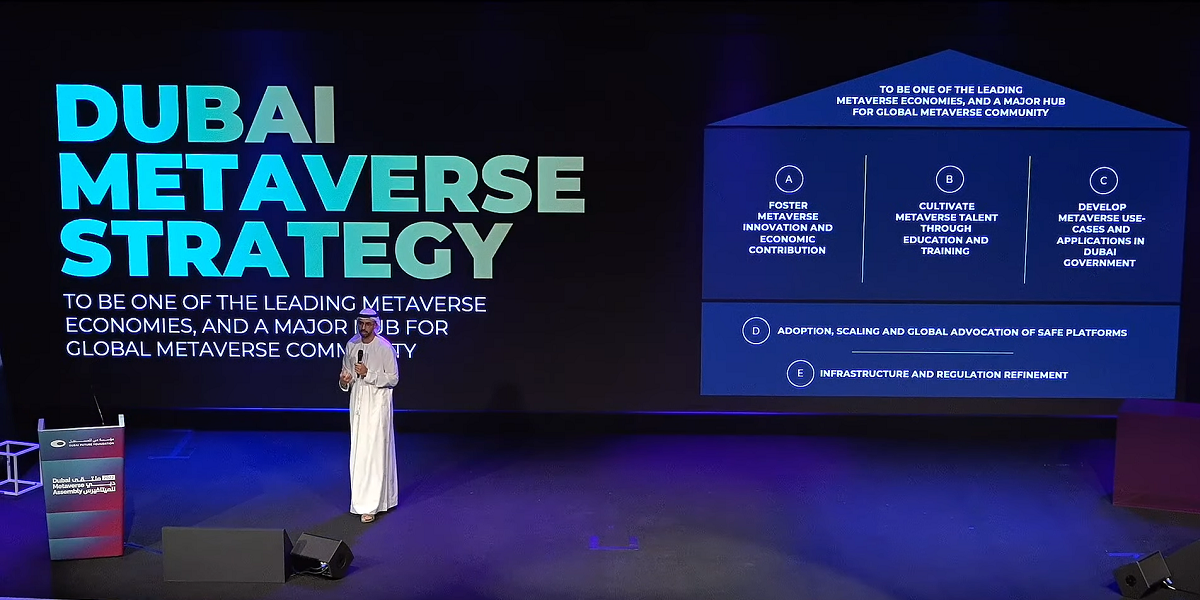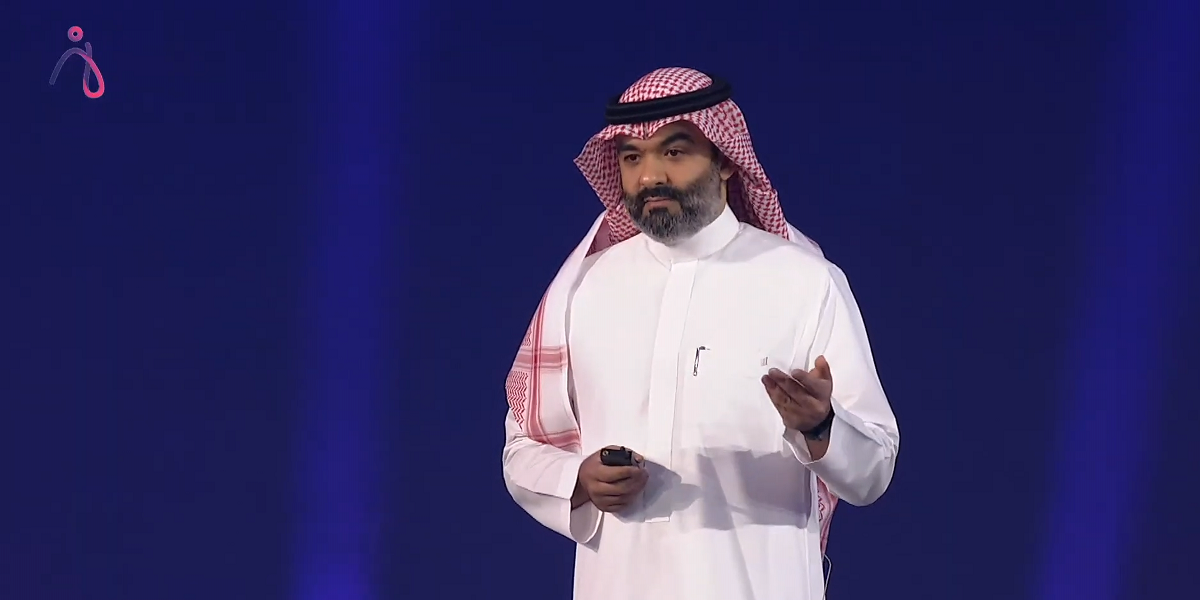Dubai Metaverse Assembly took place this week, drawing together technology experts, innovators and government policymakers from all over the world and connecting with tens of thousands of virtual attendees. Many visions, opinions and predictions were shared at the event but on one thing they all agreed on: Dubai is leading the way in creating metaverse policy!
The Dubai Metaverse Assembly took place at the Museum of the Future and the Jumeirah Emirates Towers in Dubai this week (28-29 September), drawing 500 technology experts, innovators and government policymakers together from more than 40 prominent local and global organisations. Following on from the Dubai Metaverse Strategy announced in July, the event certainly did its job of capturing the attention of global metaverse and Web3 leaders. More than 20,000 people worldwide watched the event virtually.
Many visions, opinions and predictions were shared, including new metaverse phrases such as Gross Metaverse Product and B2A (standing for business-to-avatar). However, the broad consensus at this event was that the future remains hard to predict! No one really knows how long the grand metaverse concepts that the technology industry has will take to come together, when our new and existing virtual worlds will become interoperable or what regulation is required to govern the metaverse. Meta intimated that many of the concepts being talked about today will take decades to become virtual reality.
One thing that technologists, investors, businesses and finance professionals did seem to agree on, was that the metaverse demands forward-looking policymaking and for governments to proactively set the agenda. They also all agreed that this was exactly what the Government of Dubai was doing, as one delegate put it ‘at light speed’, fast-developing the environment that metaverse, Web3 and DeFi businesses need to create and grow.
Delivered in the presence of His Highness Sheikh Hamdan bin Mohammed bin Rashid Al Maktoum, Crown Prince of Dubai, Chairman of The Executive Council of Dubai and Chairman of the Board of Trustees of the Dubai Future Foundation, H.E Omar Sultan AlOlama Al Olama, UAE Minister of State for Artificial Intelligence delivered a compelling case for why Dubai was well-positioned to become a global metaverse hub. The Dubai Metaverse Strategy will both capitalise on Dubai’s strengths and invite metaverse firms to help shape how Dubai leverages the new technologies and develops new policy.
The Dubai Metaverse Strategy echoes some of the Dubai Blockchain Strategy announced in 2016, which included a goal for all Dubai government documents to be moved to blockchain. In recognition of the fact that there were both huge opportunities, yet many unknown facts, the government formed the Global Blockchain Council. Inviting global blockchain leaders and local innovators to contribute, the new council set about identifying how blockchain technology could help government, specific use cases and steps that would need to be taken to move forwards with the emerging technology.
As touched on in last week’s Middle East AI News, the Government of Dubai has worked hard to position itself to better identify, assess and act on upcoming digital and technology opportunities. It’s open engagement of the private sector, combined with its agility in policymaking now allows the emirate to move forward quickly and purposefully with initiatives like the Dubai Metaverse Strategy, together with supporting policy and regulatory frameworks.. This, in turn, provides developers, innovators and platforms with the confidence to use Dubai as a based to push ahead with their own plans.
Keith Jordan, Vice President Innovation, Mastercard Labs summed it up in comments made on Day Two of the Dubai Metaverse Assembly, “What’s really amazing is that the [Dubai] vision is being set from the top down. That’s really important, because you need to set that North Star.”
And that’s what Dubai’s become extremely good at. Finding that ‘North Star’ and setting the coordinates.
This article was first posted in my weekly Middle East AI News on Linkedin.



